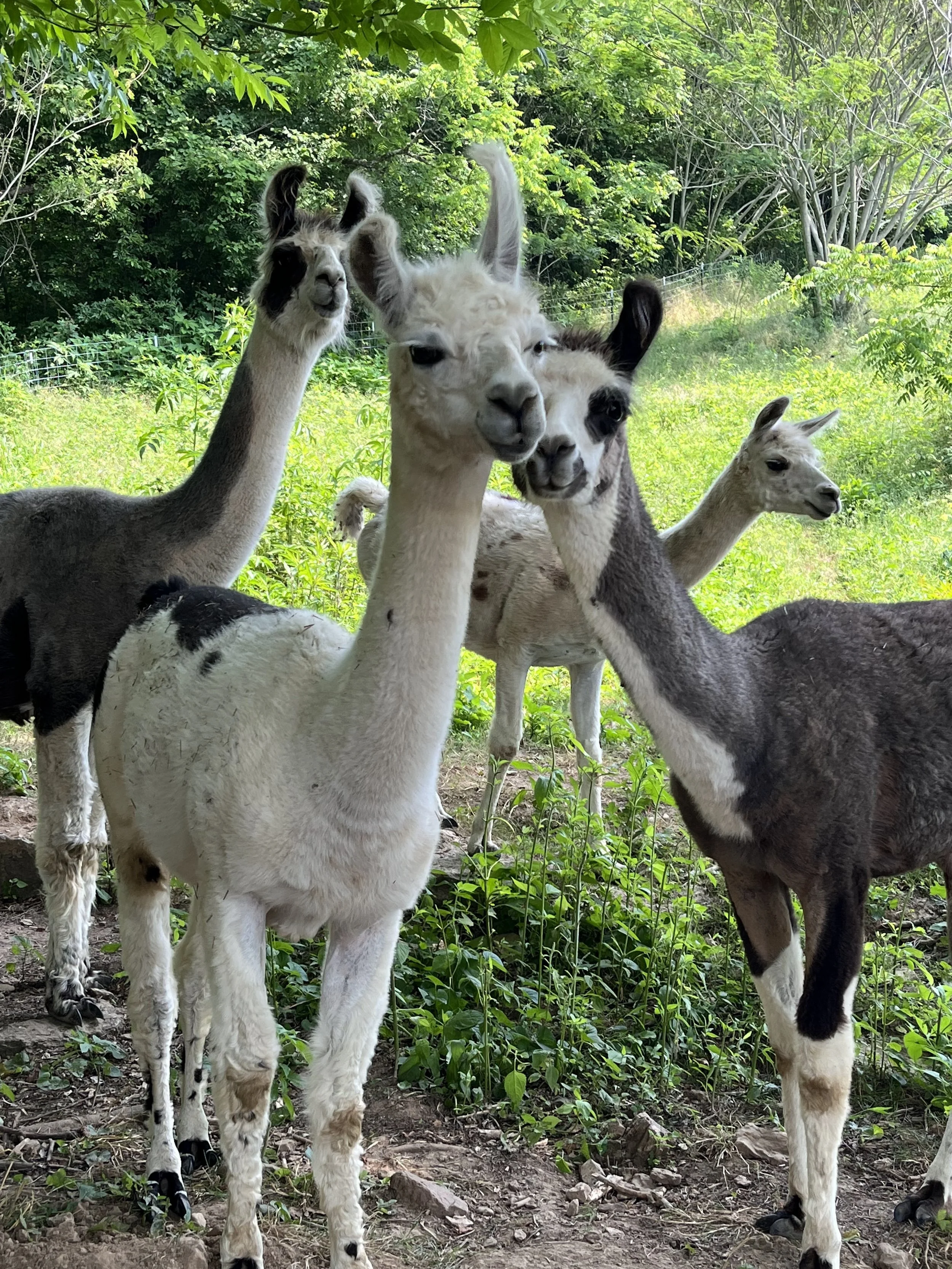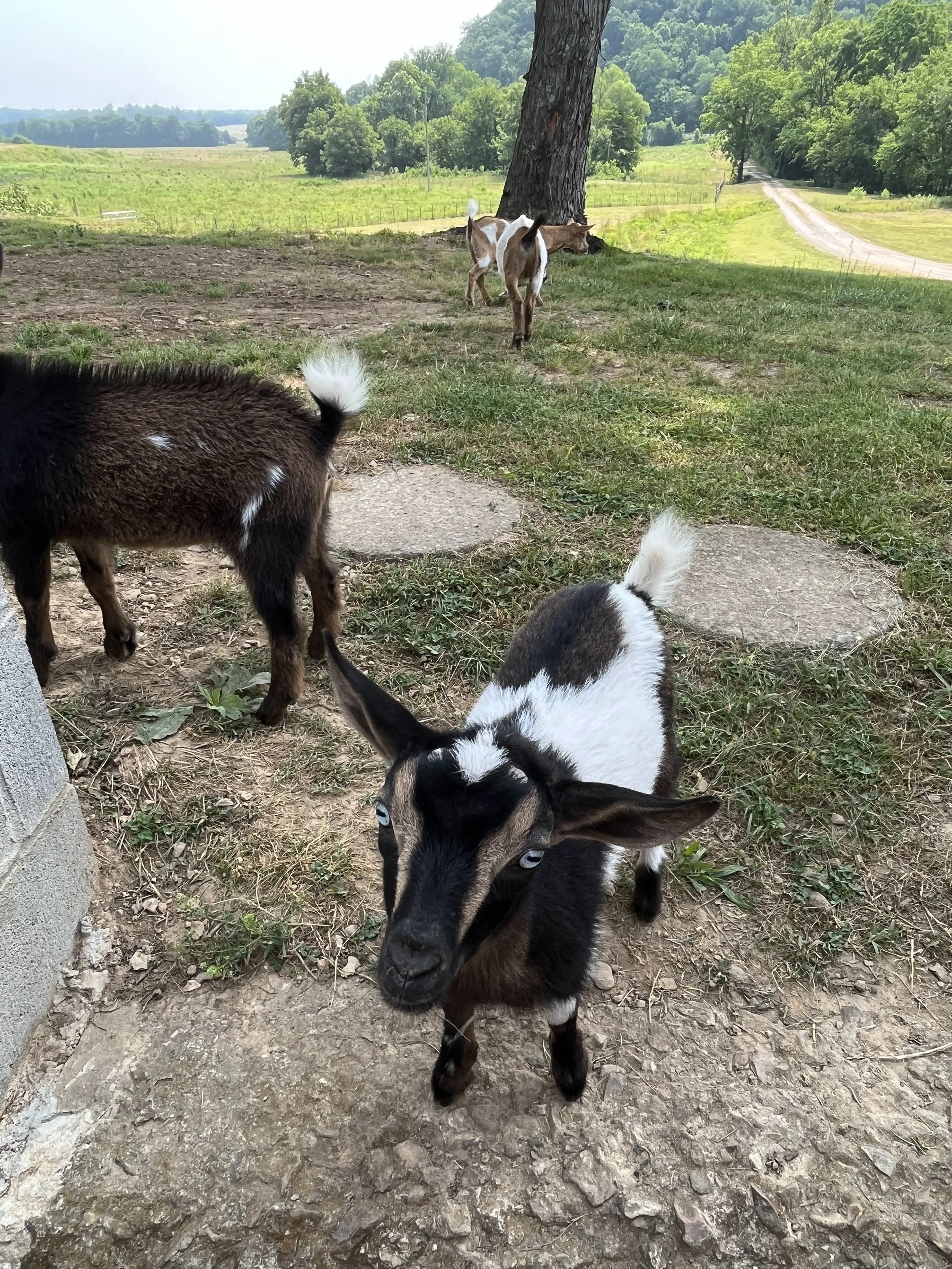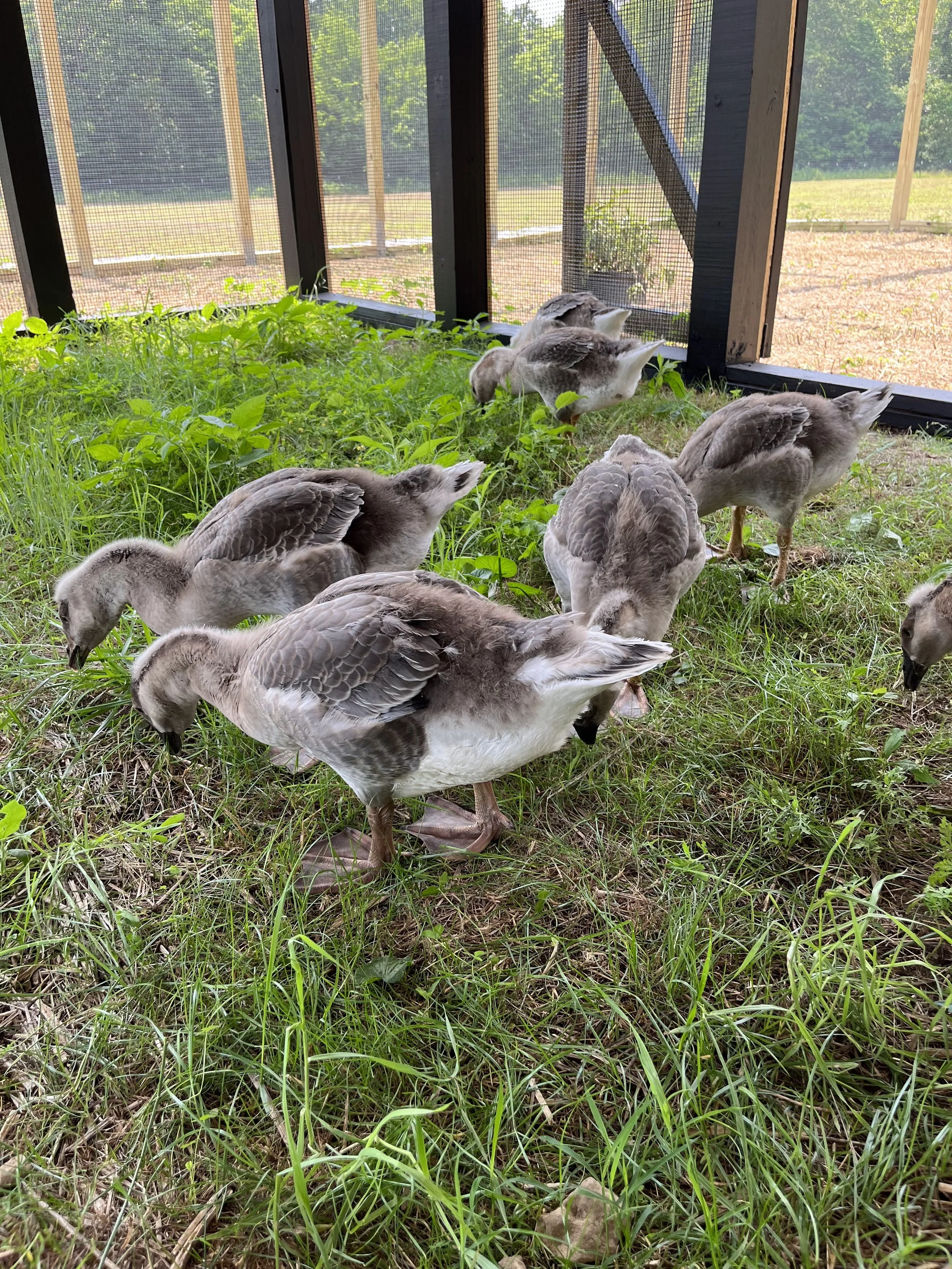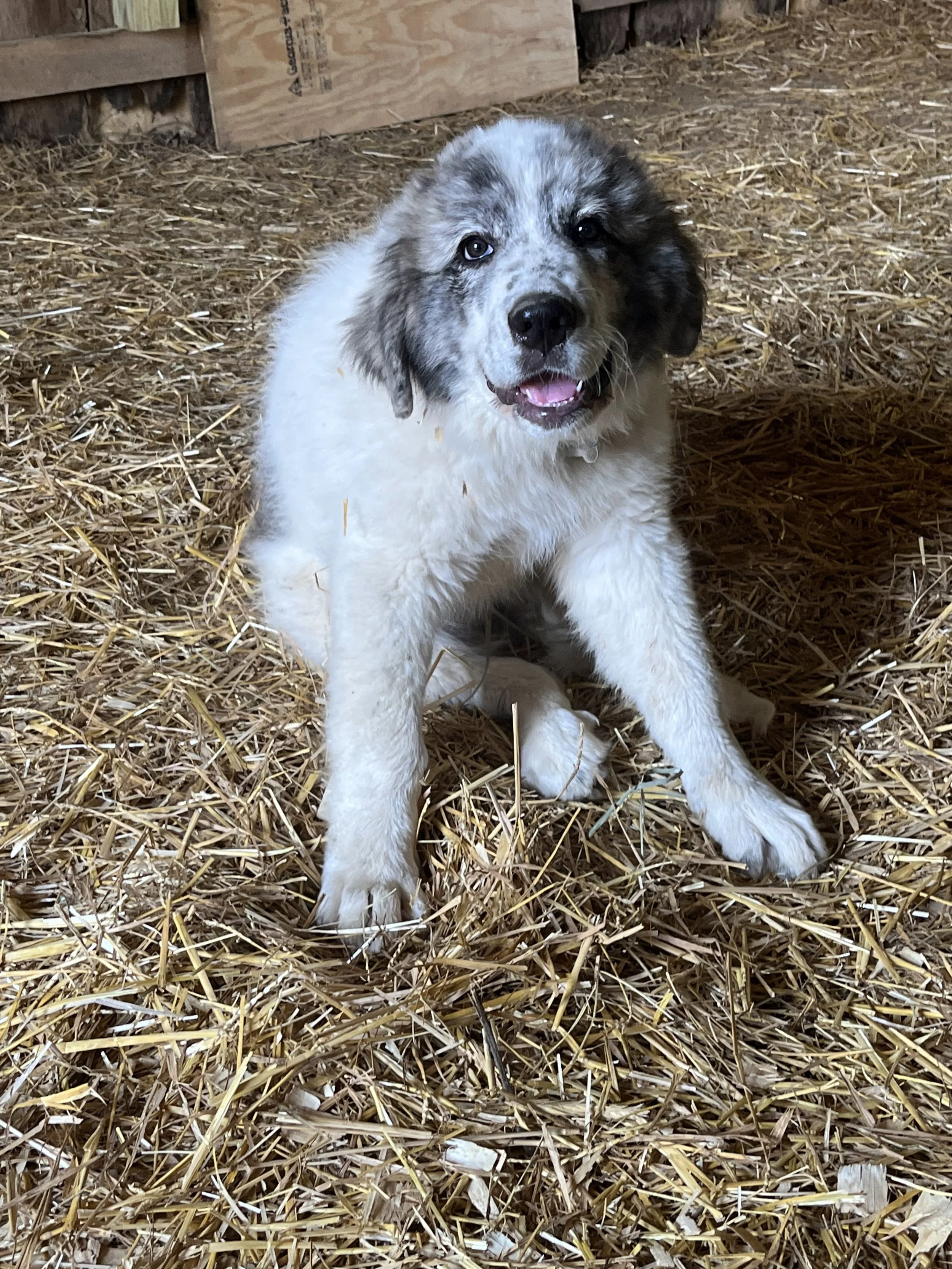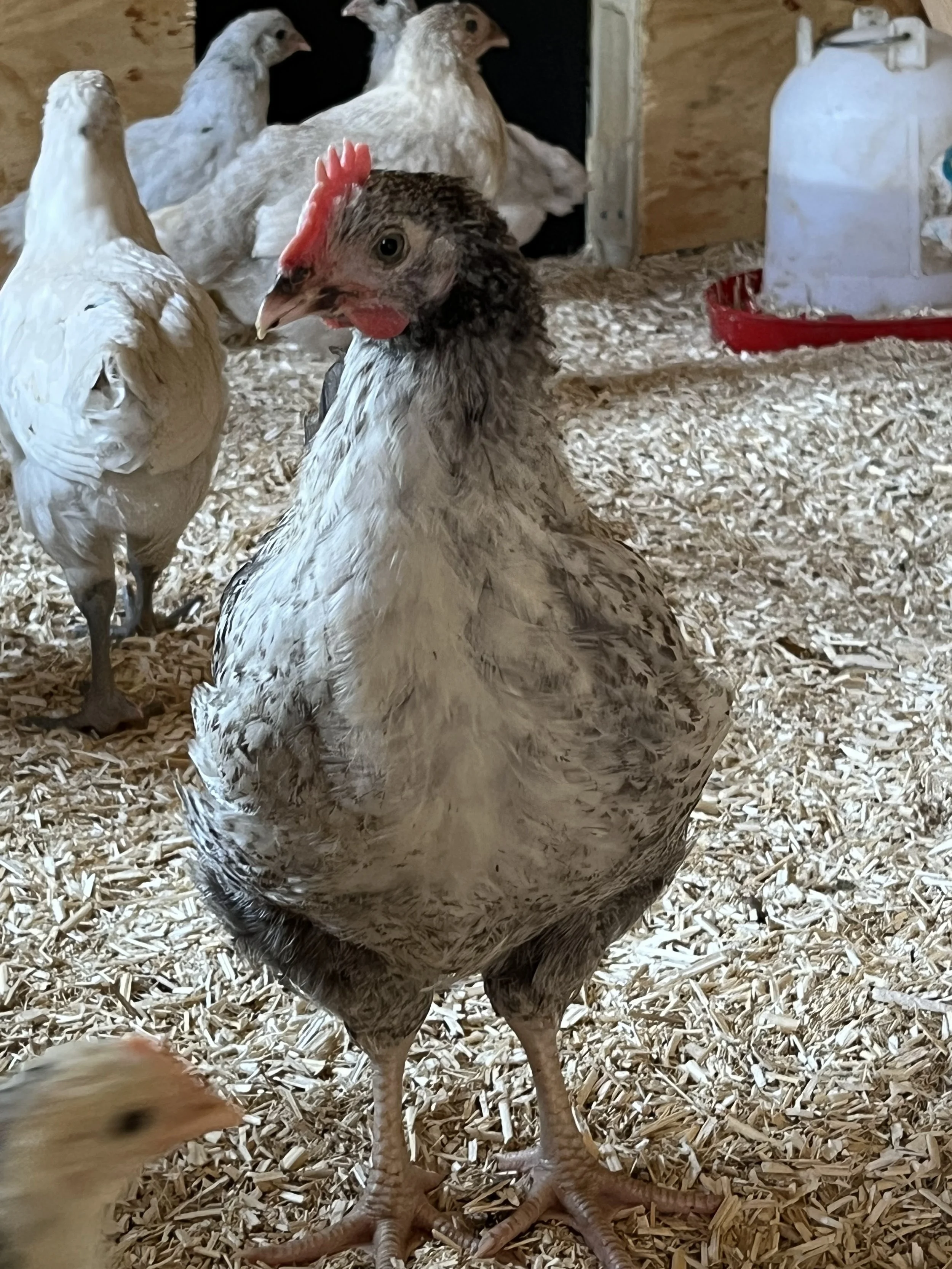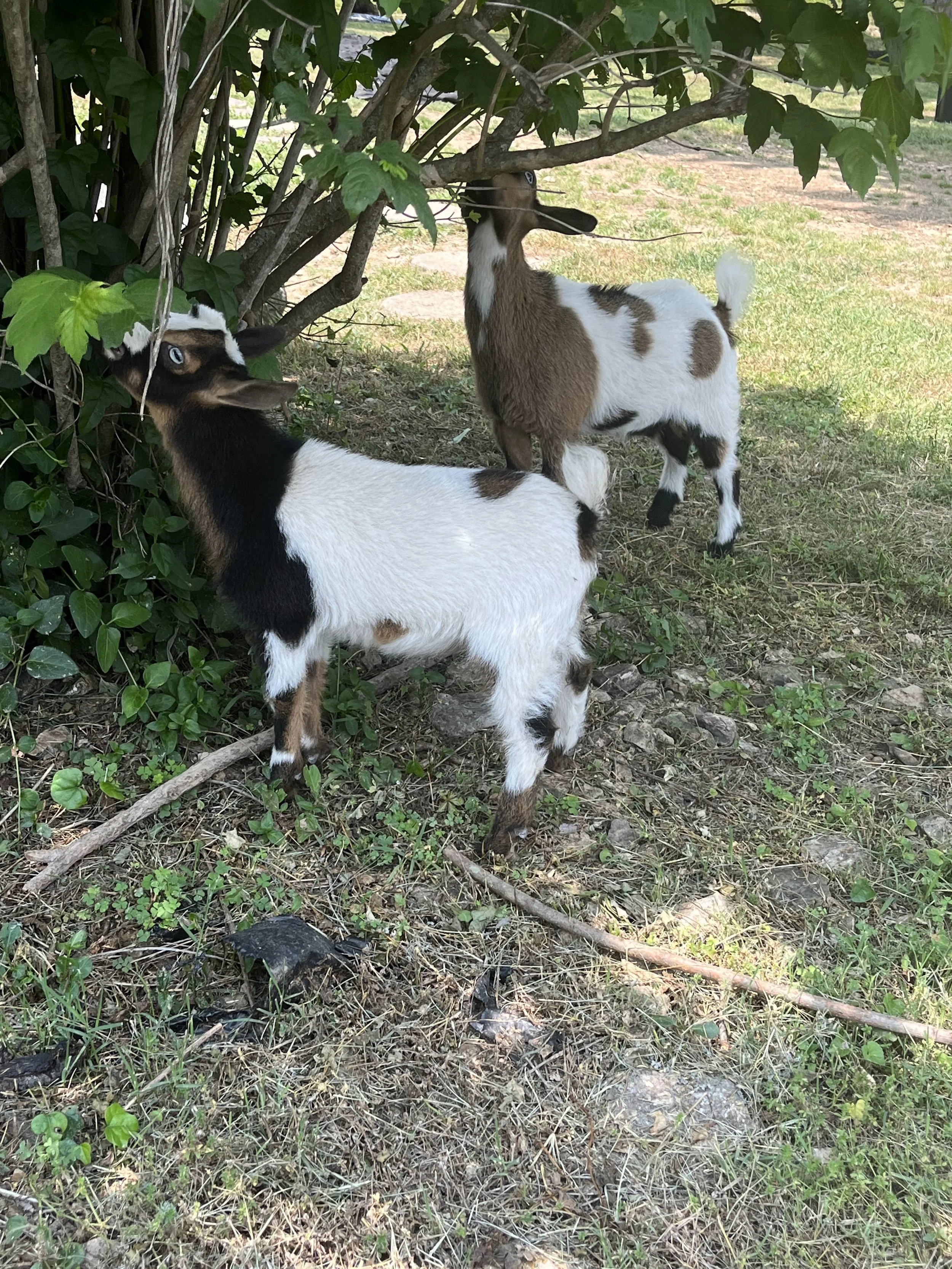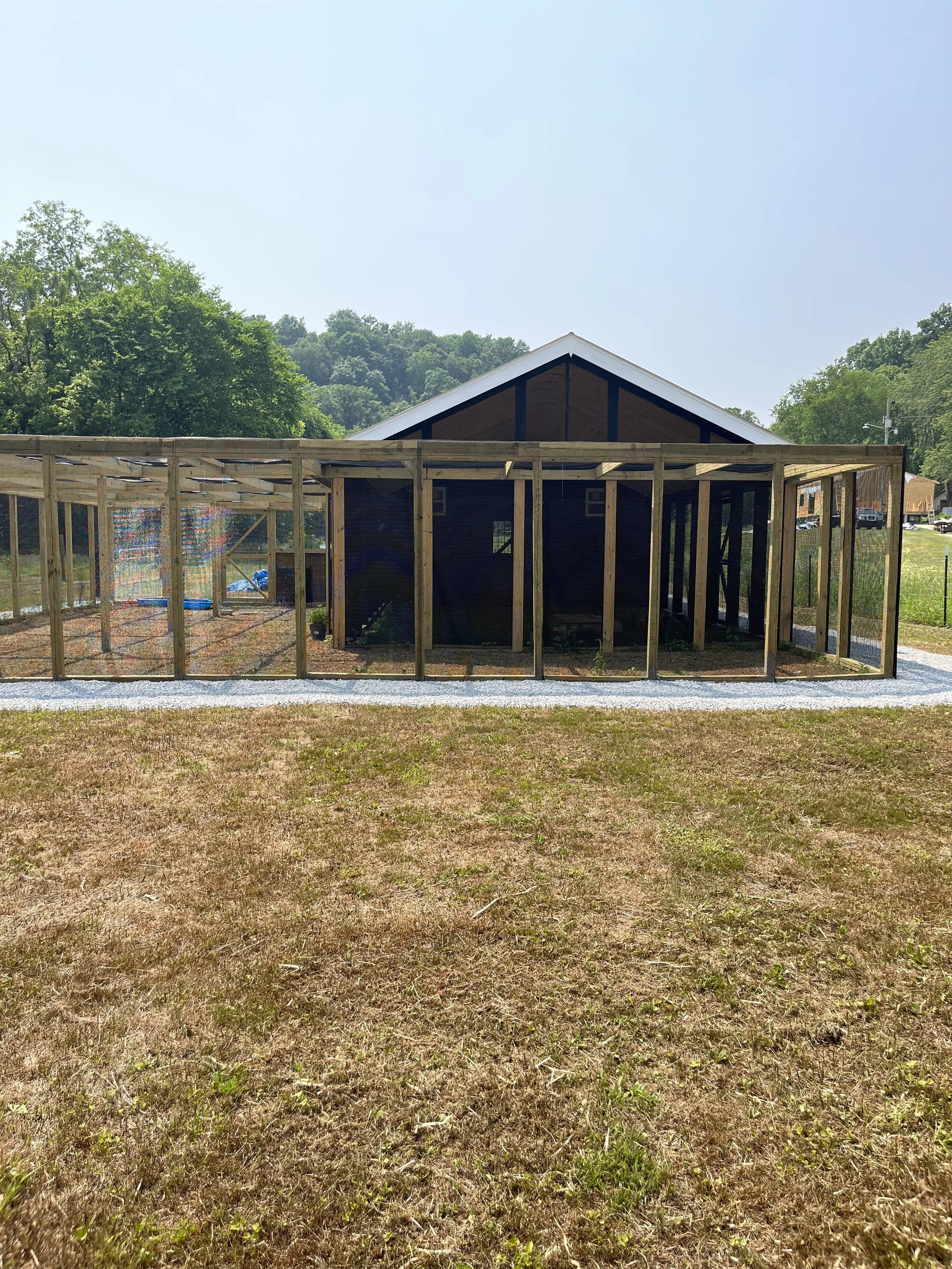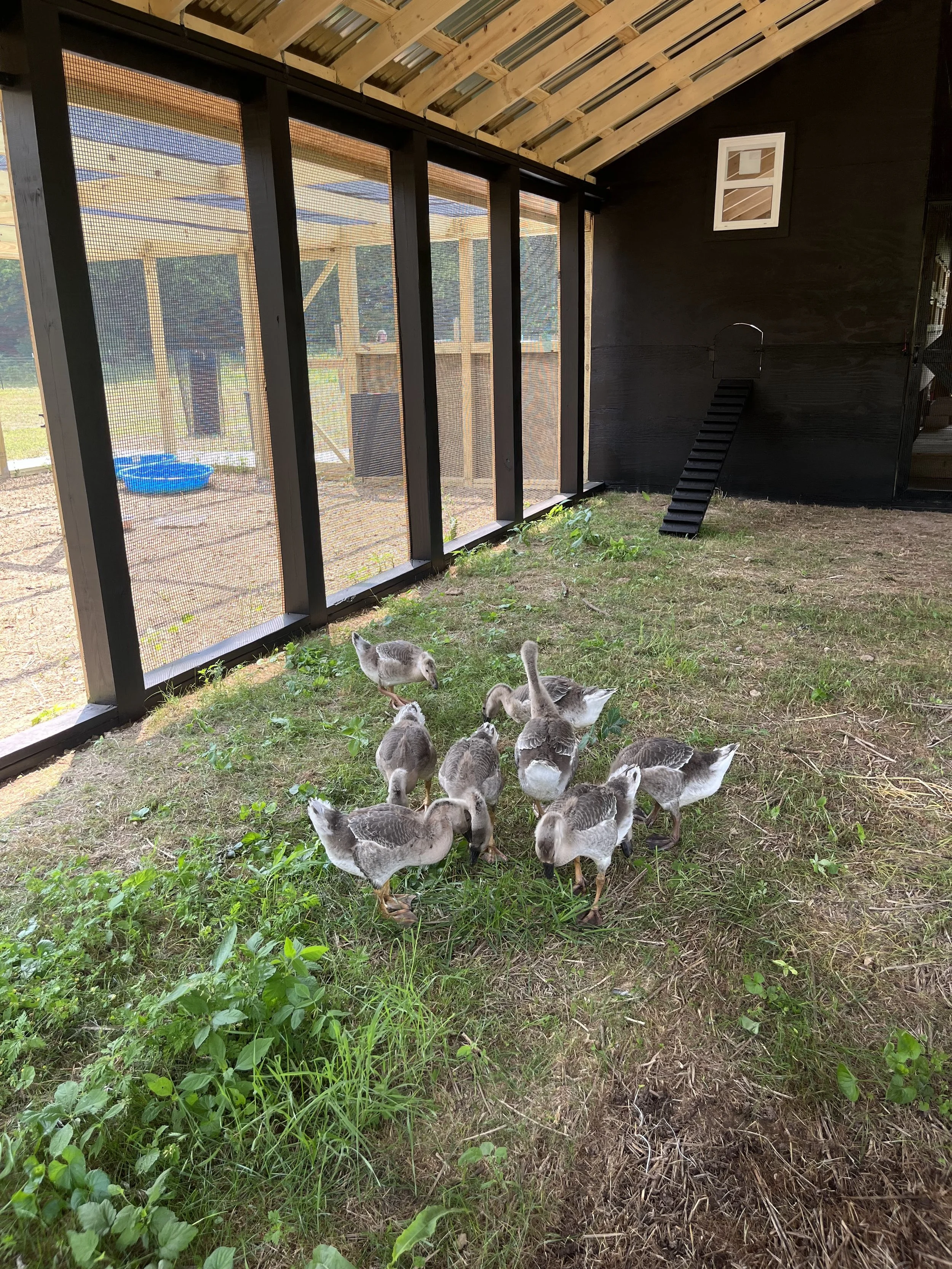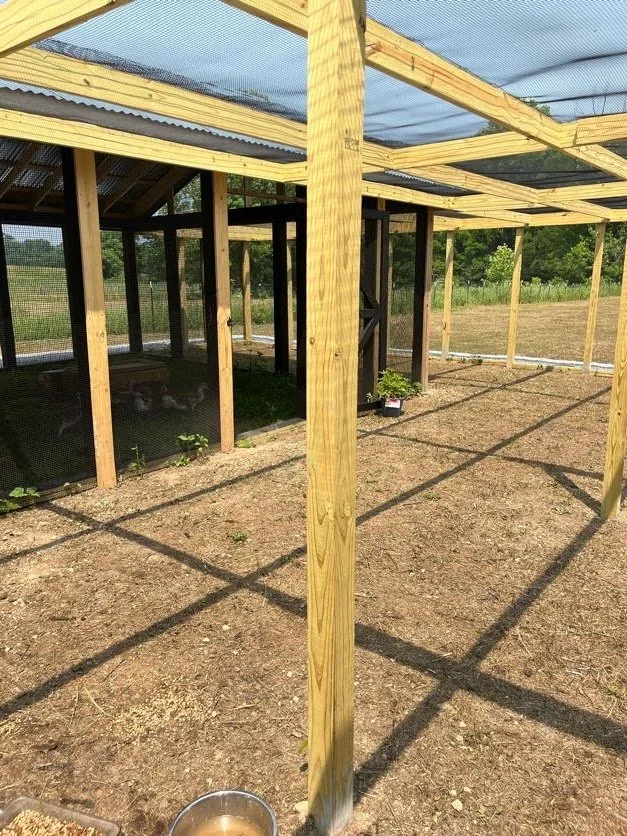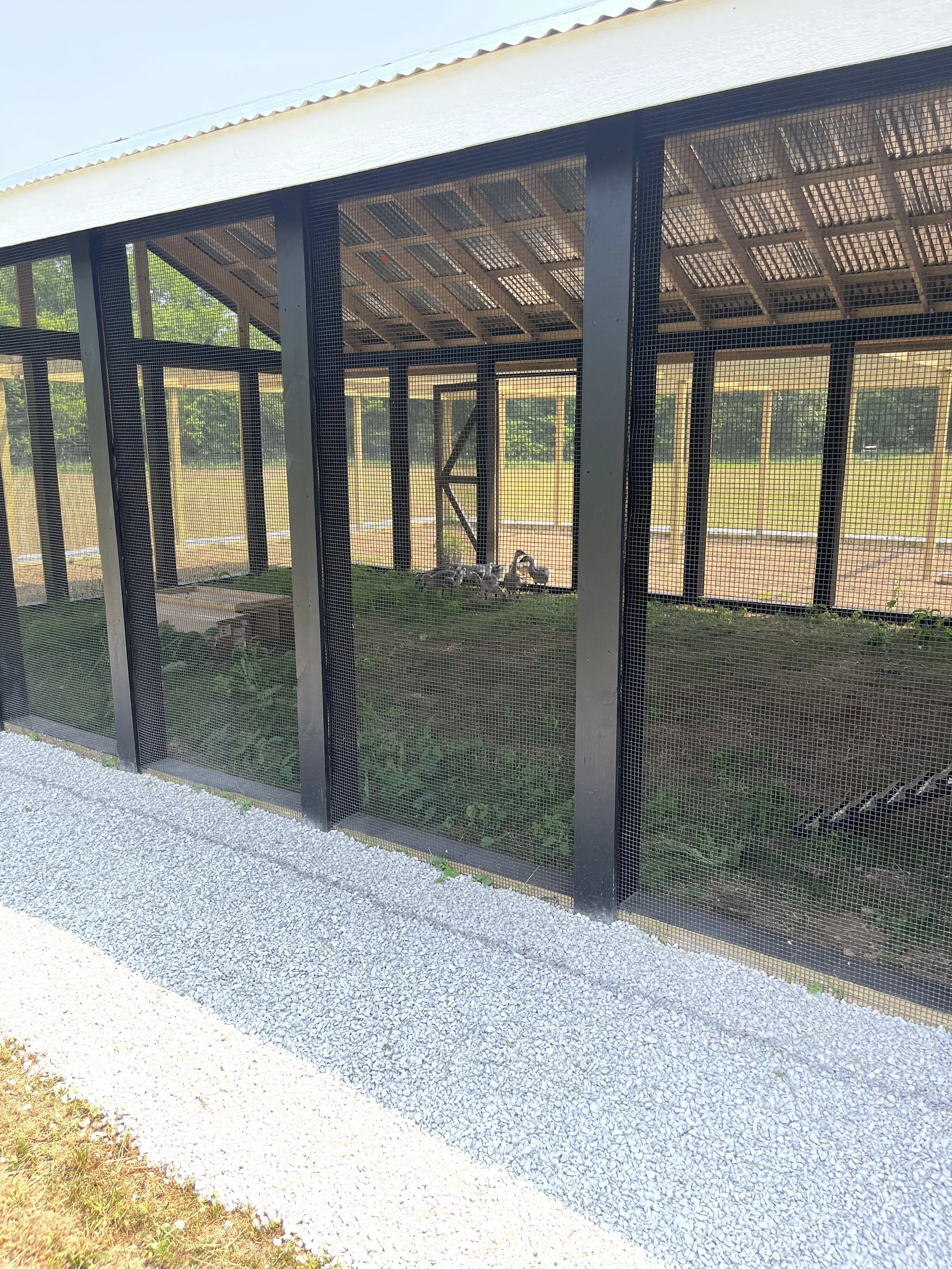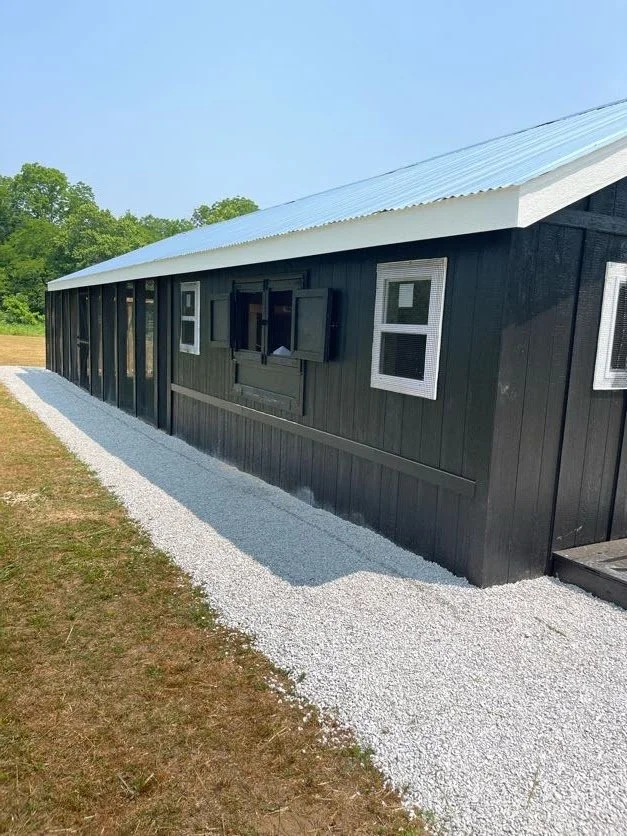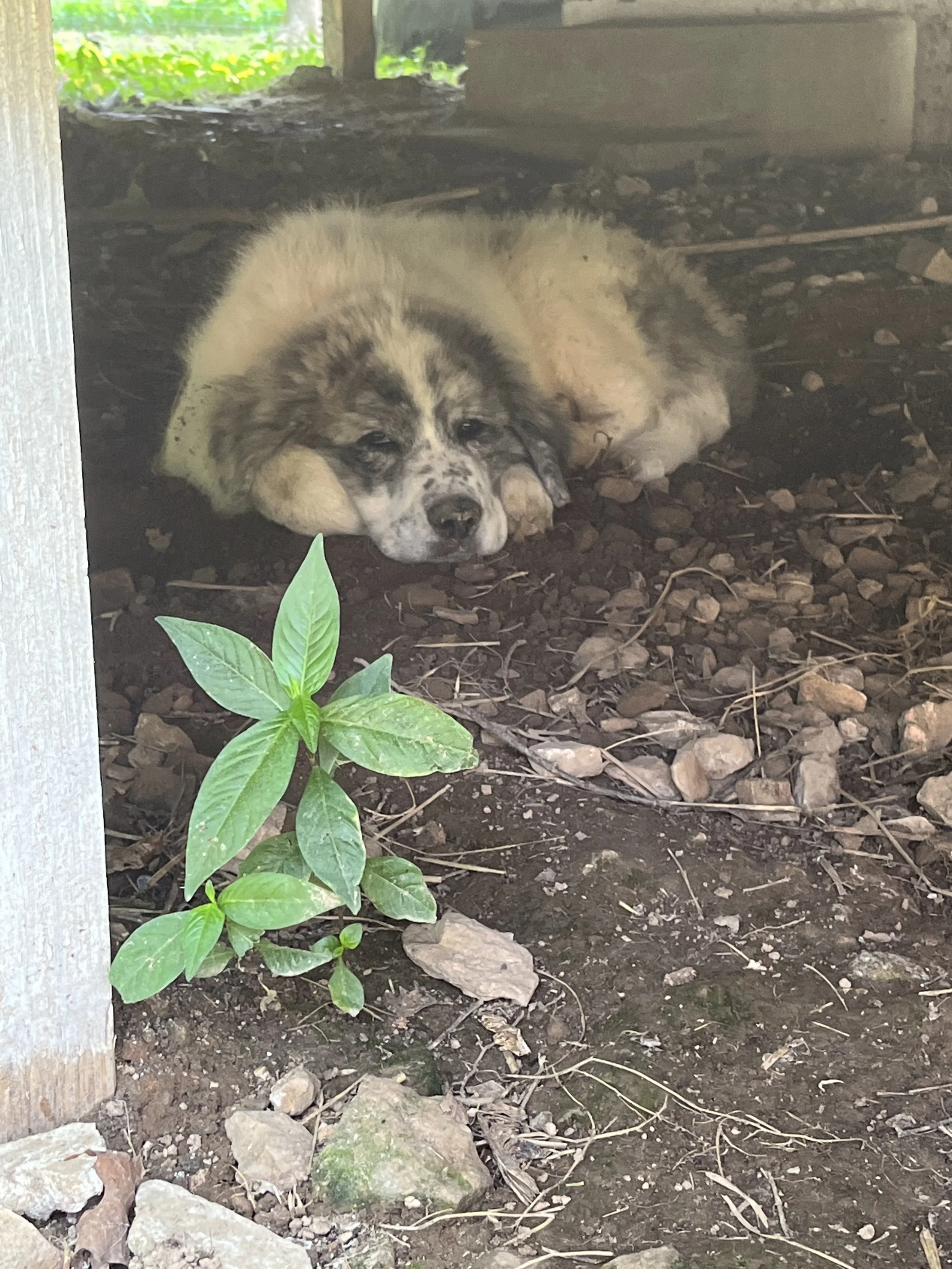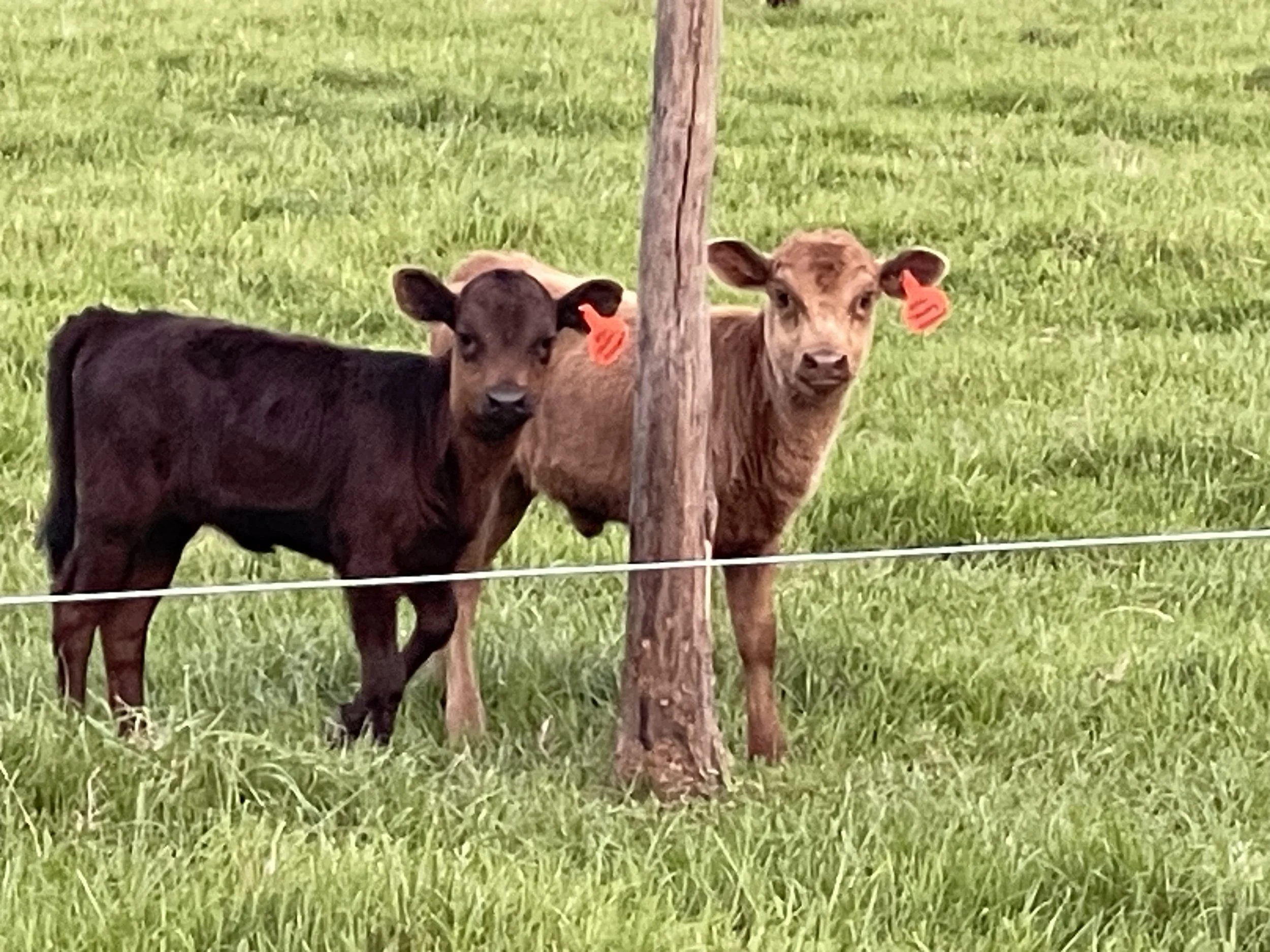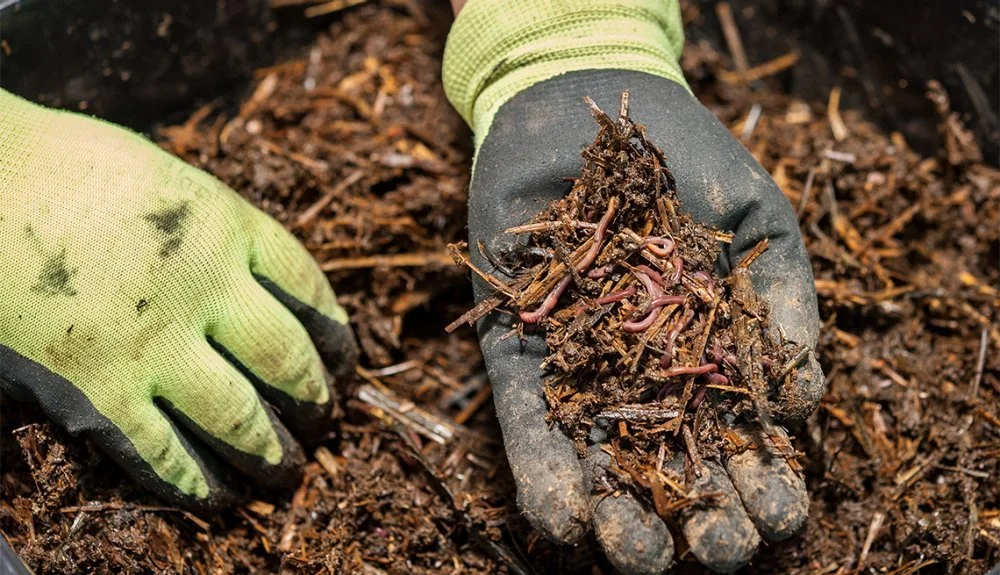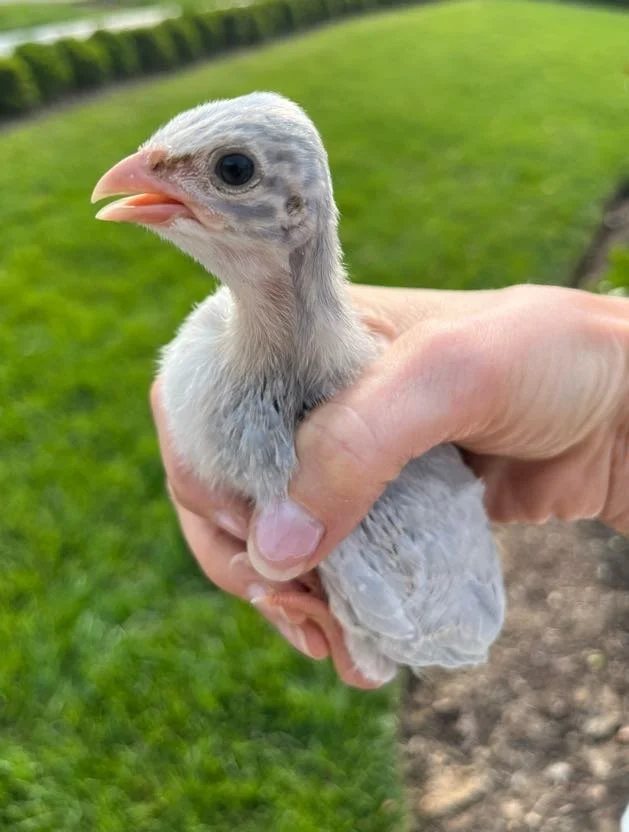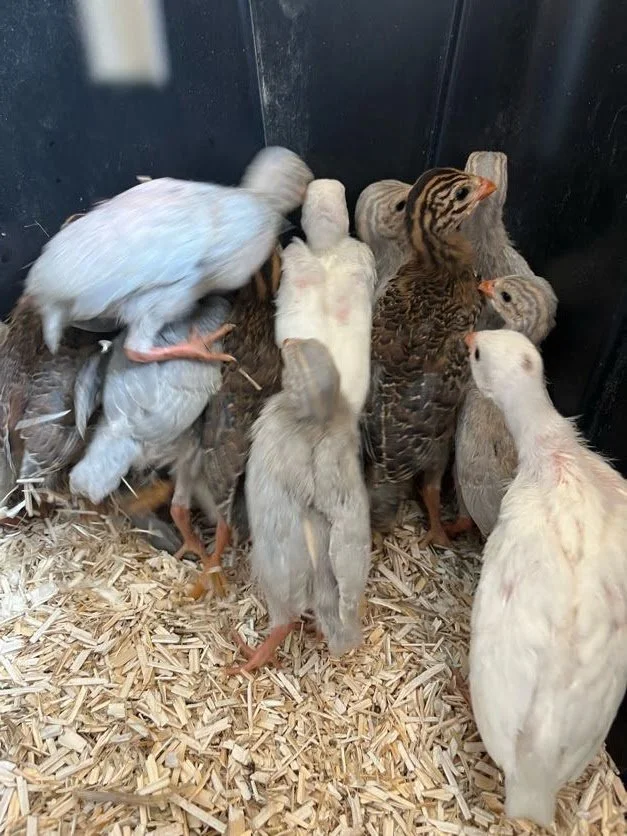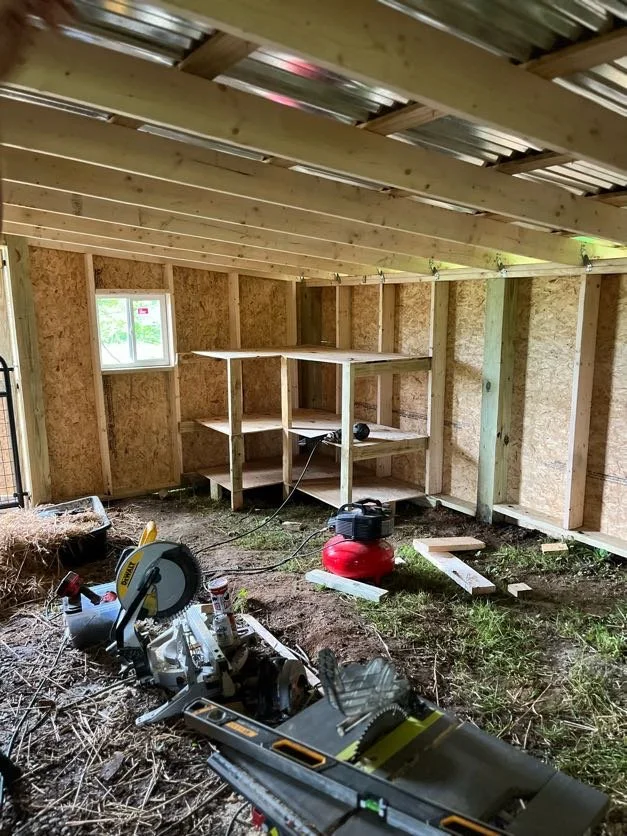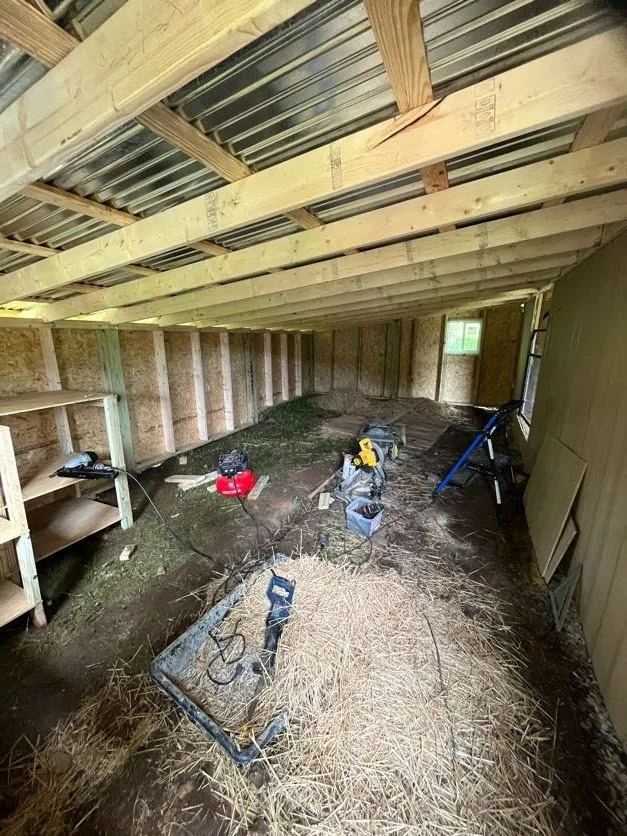Farm Update #2
Animals have arrived!
We are a farm bustling with lovely ladies! In March, we welcomed our guardian female llamas: Stella, Lizzie, Darla, and Secret. These sweet girls serve as primary guardians for our goats. All our animals, except for our chicks, were sourced from local farms – llamas from Alabama, dogs from Tennessee, and goats from various locations.
Our Nigerian Dwarf arrived in early April, not even a week old. Coming at such a young age meant round-the-clock bottle feeding. We acquired local raw milk for our baby girls: Tinkerbell, Bambi, Fluffy, Milly, Bullseye, and Pearl (can you guess which goats the kids named?).
Lynnville's largest chicken coop is now complete! Well, I can't be entirely be certain it's the largest coop, but in a town of 400 people, I'd venture to say so! Constructed to withstand all types of Tennessee weather, it stands as robust as a house, thanks to an amazing home framing crew. Take a closer look. Our 40 chicks will grow to 143 by the end of summer, so this coop is quite spacious. It spans over 440 sq ft, featuring 10 windows and 48 nest boxes, providing ample space for our happy hens to lay eggs! The chicken run adds an additional 600 sq ft, and the aviary (a fully-screened outdoor area) measures 800 sq ft. The aviary was a last-minute addition, providing a safe haven for our chickens when they can't freely forage. Our chickens also have a dedicated 2-acre area for free-roaming and foraging, which attracts air predators (hawks!) circling the coop, patiently awaiting their next meal. Rest assured, the coop is secure! All doors and windows have latch locks and hardware cloth to keep predators out. We've used hardware cloth to reinforce the outer structure and topped it with gravel. While Lynnville may be small, the predator population is quite large. Additionally, we plan to build a tractor coop to rotate the chickens on the pasture every week.
One of the best features of the coop is the ability to walk in and have indoor access to the nest boxes, allowing us to collect eggs without being affected by rain or harsh weather. We've also incorporated ample storage space for feed and other supplies. However, my personal favorite feature is the separate room with "communicating doors" that can be used to separate roosters, chicks, or hens from the rest of the flock. We have the option to keep the doors open or use either a screen or a solid door. This fantastic idea was inspired by the numerous videos we watched from other renowned coop-making companies.
Our eight Black Chinese guard geese joined us in April to serve as formidable protectors for our chicken flock. Known for their imposing size and fierce nature, these geese are an ideal deterrent against potential predators. With their keen senses and loud honks, they act as vigilant sentinels, alerting us to any potential threats. Their presence alone is often enough to discourage intruders from approaching our precious chickens. It's truly a sight to behold - not only are these geese impressively large, but their droppings serve as a reminder of their significant presence on our farm.
The latest addition to our small herd and farm was Dixie, our Great Pyrenees guard dog. Dixie is ten weeks old, and even before we began training her, she started herding the goats. She will live with the chickens and geese, providing as much protection for our chickens as possible. Don't you think these chickens are lucky?
Next up
In July, we will be welcoming our Dexter dairy cows along with their two heifer calves, Daisy and Bella. Both calves were born in March. Dexter cattle, which originated from Ireland, are known for being one of, if not the smallest, purebred cattle in the world. They offer several benefits and can be a valuable asset to smaller homesteads or farms that require breeds of cattle that occupy less space than their larger counterparts. Additionally, Dexters possess a gentle and sweet nature, making them easy to handle. Their docile temperament has earned them the reputation of being the perfect family cow. Although they can be quite curious, their inquisitive nature occasionally leads them into peculiar situations.
Worm farm
The worm farm is now up and running! After an initial failed attempt, we have successfully established our worm farm. It may not seem challenging to grow a worm farm, but it is crucial to maintain the correct moisture level and provide proper "feed" for the worms. Excessive moisture can lead to mold formation. By adding fresh mealworms, we are enhancing the natural pasture foraging of our chickens and geese while also reducing the amount of chicken feed needed.
“Organic” natural pest control!
Farms are notorious for ticks. We've been picking them off our animals and ourselves since the weather turned warmer. As an organic farm, we've faced challenges in using chemicals or herbicides on our property, as they can harm other beneficial insects like bees, ladybugs, and butterflies. However, we found a solution: Guinea fowl to the rescue! Last week, we welcomed 16 new little keets to our farm. For the first six weeks, they'll be in the brooder before we release them into the wild (well, our yard around the house).
These chicken-like birds, known as Guinea fowl, are fascinating creatures. Not only do they have an incredible appetite for pests, capable of devouring up to 5,000 ticks per day (yes, you read that correctly), but they also have a diverse diet that includes other insects and even snakes (and trust me, we have plenty of those too!). This makes them excellent natural pest control agents on our farm.
Although Guinea fowl are highly effective in reducing pest populations, it's important to note that they are also known for their loud vocalizations. However, I gladly welcome their presence and the occasional noise in exchange for a yard that is relatively free of pests. Once the keets are released, they will have the freedom to roam and explore the entire property.
In addition to their pest control capabilities, Guinea fowl are interesting birds in other ways. They have a unique appearance with their feather patterns, which can vary greatly among different breeds. Their vibrant colors and distinctive crests make them a visually appealing addition to our farm.
Furthermore, Guinea fowl are known for their strong social bonds and protective nature. They are vigilant and will sound loud alarm calls if they sense any potential threats, alerting both humans and other animals on the farm. This added security is an added benefit of having Guinea fowl roaming freely on our property.
Overall, the introduction of Guinea fowl to our farm provides not only effective pest control but also an interesting and lively addition to our agricultural ecosystem
Barn extension
Our small bonus barn has now become our main barn! Since the main barn at the back of the property requires extensive retrofitting, we have decided to transform our bonus barn into the main one. We have expanded its size, installed an overhang, added windows to bring in more natural light, and also provided electricity. Our chicks, geese, and goats are all sharing the space as they grow, develop feathers, and stay warm. Additionally, we have created a storage room, a goat pen, and a platform specifically for the goats.
Spring Water everywhere!
We have a great situation on our property with not one, but two water springs! We have an abundance of water, which is a good "problem" to have. Right now, we're working on redirecting the flow of water to ensure it goes where it naturally belongs in our ecosystem. This process also gives us a chance to create ponds for our geese and other areas where water can be held.
One of the amazing benefits of spring water is its purity and freshness. It comes straight from the ground and hasn't been treated with any chemicals or additives. This means it's perfect for our animals and plants. Plus, the natural flow of spring water helps keep the ecosystem balanced and thriving.
By making the most of our water springs, we're not only ensuring a sustainable water source for our farm but also providing a perfect habitat for our geese and other water-loving creatures. It's an exciting opportunity that allows us to work in harmony with nature.

